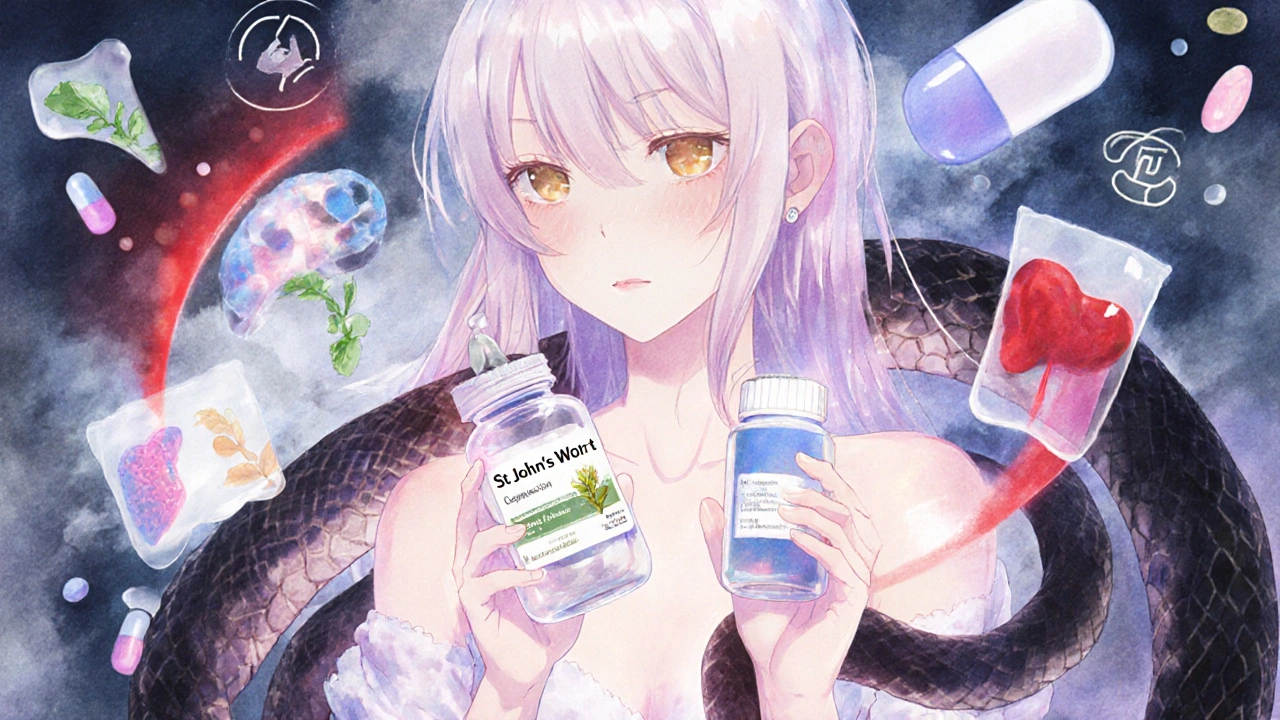St. John's wort dangers: Risks, interactions, and what you must know
When people look for natural ways to fight low mood, St. John's wort, a herbal supplement often used for mild depression. Also known as Hypericum perforatum, it’s sold in pharmacies and health stores as if it’s just another vitamin. But this plant isn’t harmless—it’s a powerful bioactive substance that changes how your body handles medications. Many assume natural equals safe, but that’s not true here. St. John's wort can turn a simple prescription into a medical emergency.
One of the biggest serotonin syndrome, a dangerous condition caused by too much serotonin in the brain risk comes from mixing St. John's wort with SSRIs like sertraline or fluoxetine. This isn’t a theory—it’s documented in hospital reports. Symptoms? Shaking, confusion, fast heartbeat, high fever. People don’t realize they’re combining two antidepressants—one prescribed, one bought off the shelf—until they’re in the ER. And it’s not just antidepressants. St. John's wort also interferes with birth control pills, blood thinners, and even some cancer drugs. If you’re on any regular medication, this herb could be silently reducing their effect—or making them toxic.
Another hidden danger? It doesn’t show up on drug tests. Doctors won’t ask about it unless you mention it. Patients often think, "I’m just taking a herbal tea," and never connect their sudden anxiety, insomnia, or dizziness to the supplement they started last month. The FDA doesn’t regulate supplements like drugs, so the dose in one bottle might be twice what’s in another. There’s no standard. No safety net. Just a plant with real, measurable chemical effects.
Even if you’re not on meds, St. John's wort isn’t risk-free. It makes your skin sensitive to sunlight—some users get serious sunburns after just a few minutes outside. It can trigger mania in people with bipolar disorder. And if you suddenly stop taking it, withdrawal symptoms like dizziness, nausea, and electric-shock feelings can hit hard. This isn’t a gentle herbal remedy. It’s a potent compound that interacts with your nervous system, liver enzymes, and hormone pathways.
Below, you’ll find real cases and clear breakdowns of what happens when St. John's wort meets common drugs, how to spot early warning signs, and why even "natural" doesn’t mean "safe." These aren’t hypothetical warnings—they’re based on patient experiences, clinical reports, and medical guidelines. If you’re using this herb, or thinking about it, you need to know what’s really going on inside your body.

